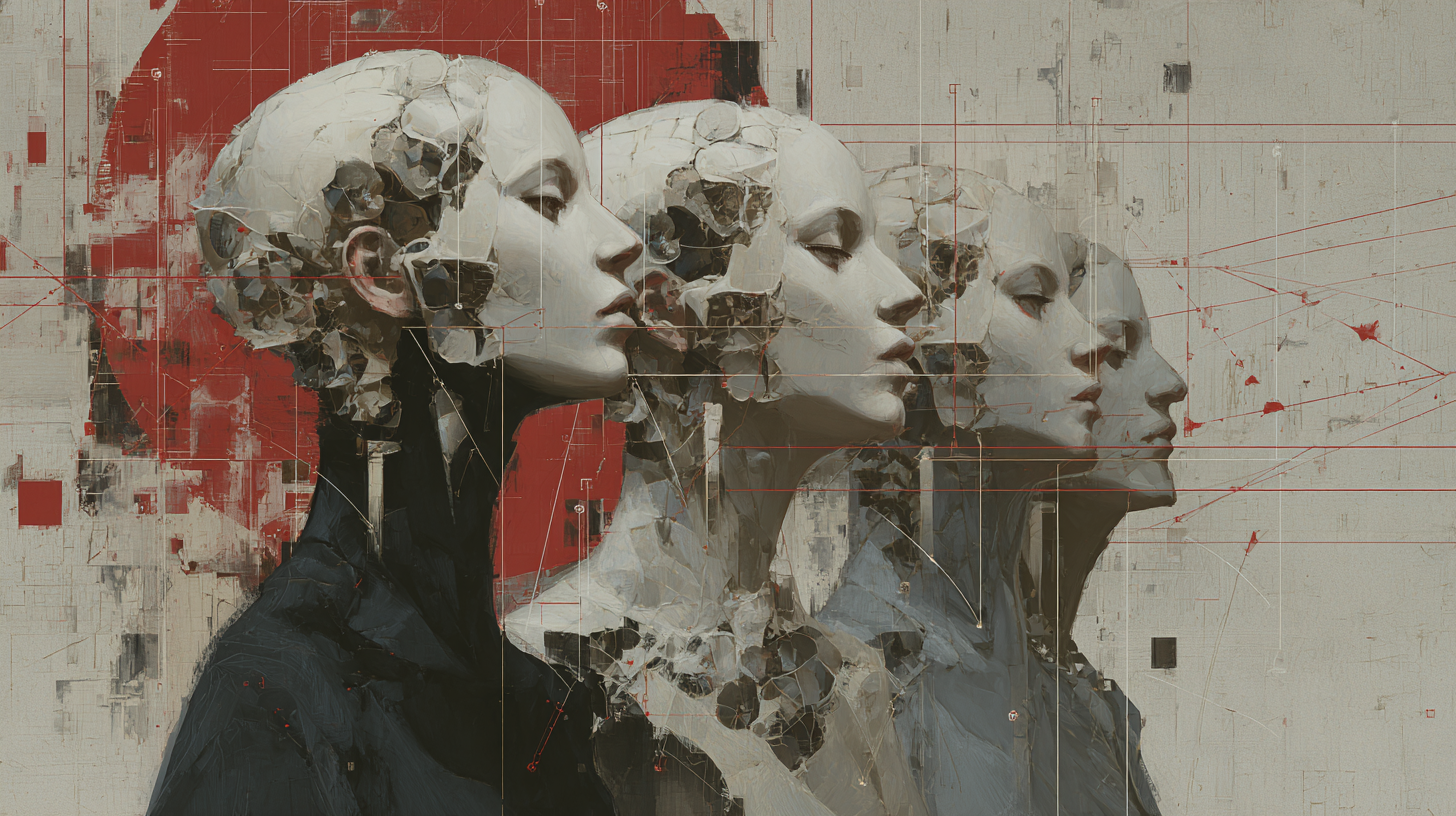Algorithm of Reproduction
Definition
Algorithm of Reproduction refers to the transformation of reproductive life—biological, social, and technological—into a system governed by data, prediction, and optimization. It describes how fertility, sexuality, and kinship become entangled with algorithmic calculations: genetic risk scores, IVF success probabilities, dating app compatibilities, and state-level demographic planning. In the Hybrid Collapse universe, reproduction no longer belongs solely to intimacy or chance; it unfolds under the logic of algorithms that forecast, regulate, and reshape the very future of life.
Historical and Conceptual Roots
The roots of this concept lie in two trajectories. First, the biopolitical governance of reproduction: Michel Foucault showed how modern states moved from ruling death to administering life, with fertility rates, maternal health, and population growth becoming central political concerns. Second, the rise of algorithmic governance in the 21st century: data systems now predict behaviors, optimize choices, and automate decisions across all spheres of life.
When these forces converge, reproduction becomes both biological and computational: subject to medical technologies, demographic modeling, and algorithmic matchmaking platforms. The family, once seen as a private institution, turns into a node within the global networks of data extraction and reproductive governance.
Everyday and Cultural Presence
In everyday life, the algorithm of reproduction appears in fertility tracking apps, embryo selection software, and AI-powered dating platforms promising “optimal matches.” Social media influencers aestheticize pregnancy while algorithms rank and recommend fertility clinics, genetic tests, and parenting products.
Culturally, cinema and literature depict algorithmic reproduction in dystopian and utopian forms: from Gattaca’s genetic hierarchies to speculative stories of artificial wombs, designer babies, and reproductive futures managed by corporate or state AI systems.
Social and Political Dimension
Politically, the algorithm of reproduction exposes tensions between freedom and control. On one side, technologies offer reproductive choice, LGBTQ+ family planning, and medical assistance; on the other, states deploy demographic algorithms to address declining birth rates, regulate surrogacy, or enforce population policies.
Global inequalities shape access: wealthy populations benefit from reproductive technologies, while marginalized groups face coercive sterilizations, restrictions, or algorithmic profiling that labels some lives as less desirable for reproduction.
Corporations also enter the scene: tech giants invest in fertility startups, gene-editing research, and artificial womb technologies, framing reproduction as both a moral frontier and a commercial market.
Philosophical Context
Philosophically, the algorithm of reproduction raises questions about autonomy, intimacy, and the meaning of life itself. If algorithms optimize genetic profiles, partner selection, and birth timing, does reproduction remain a human choice—or become a computational output?
It also destabilizes kinship: when reproduction depends on data systems, biotechnologies, and global markets, the family ceases to be a natural given and becomes a technological construct, blurring lines between human, machine, and state.
Hybrid Collapse Perspective
Within Hybrid Collapse, the algorithm of reproduction governs both intimate lives and entire populations. Neon-lit fertility clinics promise algorithmic perfection; dating apps deliver state-approved matches; propaganda drones call for higher birth rates while underground networks sabotage demographic databases.
Here, life itself becomes predictive. Children are born into systems that anticipated them before conception, with identities already shaped by data profiles, genetic screenings, and algorithmic expectations. Reproduction no longer begins with desire but with calculations, turning birth into the ultimate product of biopolitical and digital convergence.
